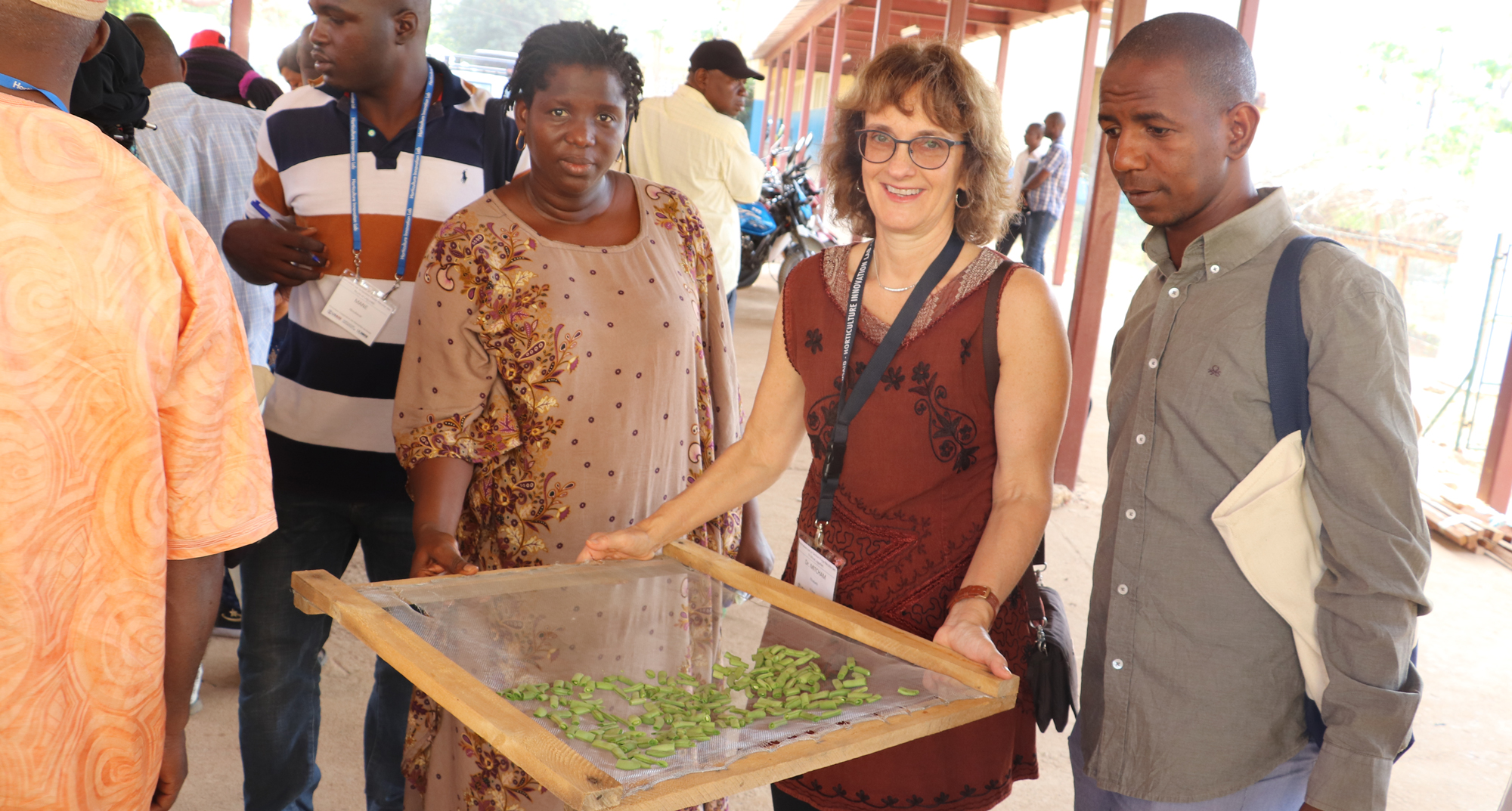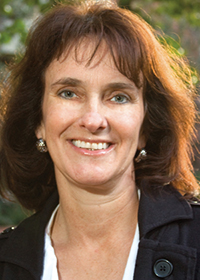

As we wrap up 10 years of global leadership promoting and improving the value of horticulture for community and human development, I would like to reflect on the accomplishments of the Horticulture Innovation Lab in this arena, and highlight the importance of continuing to support horticulture for nutrition security.
Fruits and vegetables have a lot to offer the world. High-value horticulture crops provide opportunities for diversified income generation by smallholder farmers, resiliency due to the diverse crops and short crop cycles, micronutrients to nourish bodies and minds, and empowerment for women and youth. Only horticultural crop consumption is associated with positive outcomes for both stunting and the number of deaths due to heart disease.
The Horticulture Innovation Lab’s global network, which includes its partner institutions—North Carolina State University, the University of Florida, the University of Hawai’i at Manoa and UC Davis—as well as its research partners and collaborators, has worked across the horticulture value chain to improve seed systems, develop sustainable production practices, improve handling of produce after harvest, and create market linkages. Our network has also enhanced the capacity of institutions to conduct research and mentor students and the farming community on horticulture science and practice. The many accomplishments of our program would not be possible without many talented, passionate and effective partner organizations and researchers, as well as our management team staff.
Our global network of experts investigated more than 2,000 new technologies or management practices over the past 10 years. More than 750 technologies are now available for transfer and scaling. More than 32,000 farmers are applying or using new technologies as a result of our network’s collective work, and more than 13,000 hectares of land are under new management practices or using new technologies. Some other highlights:
- Our Penn State colleagues will soon release online modules on gender and agriculture and also developed a gender and agriculture graduate level certificate program at Penn State.
- Our colleagues at Rutgers, the State University of New Jersey, determined that in amaranth, the genotype effect on iron content was significant, with the selection of one entry that was high in iron across all environments tested.
- UC Davis researchers working in Uganda have seen greater investment in horticultural irrigation as a result of their project.
- Vegetable farmers in Rwanda have adopted improved postharvest technologies and are making more income as a result of Agribusiness Associates’ work there.
- The largest seed company in Bangladesh has adopted drying beads for use throughout their operations to improve the quality of their vegetable seeds as a result of a partnership between UC Davis and Rhino Research.
Our management team and UC Davis affiliates have contributed a number of innovative technologies and programs. We developed the DryCard™ which is a low-cost technology to quickly assess the dryness of any dried produce. We have engaged with nine small businesses across the globe who are making and selling DryCards to smallholder farmers, traders and storage operators.
Our UC Davis inventors also developed the chimney solar dryer, an improved dryer design that dries more product, faster than traditional cabinet solar dryers. A series of manuals and videos were created to allow interested individuals to build their own solar dryer.
UC Davis graduate students with the Horticulture Innovation Lab conceived of the innovative Trellis Fund program. Since 2011, the Trellis Fund has engaged 76 graduate students from five U.S. universities to work with a local organization in a Feed the Future country on a horticulture project, providing an international development experience for the students and technical expertise to the organization. Many students and organizations have continued to communicate after their projects ended.
The Horticulture Innovation Lab has effectively advocated for the importance of horticulture for development with government leaders around the world and in the United States through a number of high profile events. Our annual program meetings in Asia, Africa, Central America and the United States have brought horticulture experts together with in-country partners, NGOs, stakeholders and government leaders to discuss how horticulture can improve nutrition security, strengthen local economies, and contribute to vibrant communities.
In 2018, we joined with the World Vegetable Center and Catholic Relief Services to advocate for vegetables and fruit with a workshop “The Power of Produce: How vegetables and fruit can conquer malnutrition and poverty” at the 2018 World Food Prize Borlaug Dialogue. And in 2019, our program organized a Horticulture Research for Development Conference called, “Colorful Harvest: From Feeding to Nourishing a Growing World” in Washington, D.C. The conference brought together development professionals and donors to highlight the opportunities of horticulture for development as well as future needs. While we have clearly raised awareness about horticulture and have seen some shifts in donor emphasis to more nutritious foods, continued advocacy is definitely needed.
These accomplishments bring us to today, at the completion of two 5-year grants for the Horticulture Innovation Lab, led by UC Davis. We have every expectation that the U.S. Agency for International Development will provide funding for a Feed the Future Innovation Lab focused on horticulture in the near future, as they recognize the many contributions of fruit and vegetable research for development in meeting their global goals. So while the Horticulture Innovation Lab will be on a short hiatus, we expect that a new Horticulture Innovation Lab will be initiated before too long.
In the meantime, we plan to continue to advocate for horticulture funding for research and outreach around the world. In addition, our fabulous website, which contains a wealth of information on these topics, will continue to be available. We encourage you to make use of these resources as you also advocate for horticulture, nutrition security, and the power of produce!
